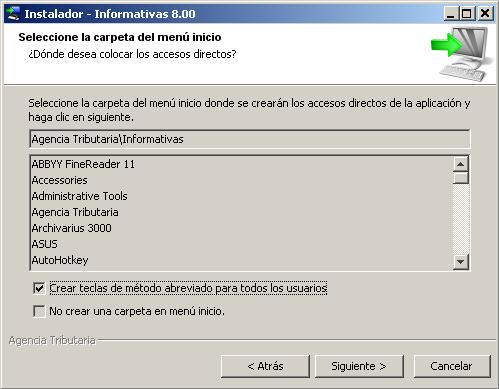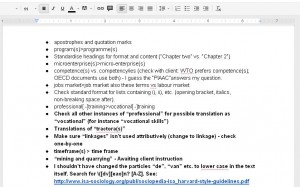In Part I of this series I discussed the expression the beautiful game used to refer to association football (which I will simply call football in the rest of this post). In this part I will look at the terminology mentioned by Joseph Lambert in his own blog post, The Terminology of the Beautiful Game.
The first half of the following table shows the terminology mentioned by Joseph Lambert in English, French and Italian, to which I have included the equivalents in Spanish and Catalan and English definitions.
Entries marked with an asterisk are not specific terms, but are ordinary words that could be used to describe the same situation.
The second half of the table contains additional interesting terms, and are discussed further below.
| French | Italian | Spanish | Catalan | English | Definition |
|---|---|---|---|---|---|
| petit pont | tunnel | túnel | túnel | nutmeg | When the ball is played between the legs of an opposing player. |
| caviar | *peach, *gem | An exceptionally good pass. | |||
| doppieta | doblete | doblet | brace, double, pair | Two goals by the same player. | |
| coup du chapeau | tripletta | hat-trick, triplete | hat-trick, triplet | hat-trick | Three goals by the same player. |
| poker | póker | pòker | Four goals by the same player. | ||
| pokerissimo, manita | manita | maneta | *score five, *thrashing, *thrash, *cricket score, *trounce | Five goals, but not necessarily by the same player. | |
| but [goal] | gol | gol | gol | goal | If you don't know what a goal is you probably won't be interested in this article! |
| corner | corner, calcio d'angolo | córner | córner | corner | Ditto! |
| córner olímpico | córner olímpic | *goal (straight/directly) from a corner, *score (straight/directly) from a corner | When the ball goes straight into the goal from a corner, without touching another player (except perhaps a small touch by a goalkeeper). | ||
| arbitre | referí, árbitro | àrbitre/a | referee | The main official in charge of a match. | |
| vuelta olímpica | lap of honour | When players walk around the edge of the pitch, celebrating in front of their fans. | |||
| cucchiaio, pallonetto | vaselina | vaselina | chip | A short, high kick going over the head of an opposing player or over the arms of the opposing goalkeeper. Also used as a verb. | |
| grand pont | *autopase | *autopase | *beat, *go (a)round | When a player knocks the ball past an opponent on one side and runs around the other side of him or her. | |
| lucarne | escuadra | escaire | top corner | The area just inside where the crossbar and post meet on the goalposts. | |
| prolongation | prórroga | pròrroga | extra-time | An additional 30 minutes of play in knockout matches when the scores are level at the end of ordinary time. | |
| temps additionnel | prolongación, descuento, tiempo añadido | prolongació, descompte, temps afegit | injury time, stoppage time, time added on | Additional time added by the referee to compensate for time lost due to injuries, substitutions or time-wasting. |
Joseph’s article does not offer a translation of manita. I believe there is no specific term in English. We would either say that a team scored five or use an expression that refers to the fact that a team were well beaten, such as the verbs thrash or trounce. The expression cricket score is often used when a team is banging in the goals. A commentator might say ‘At one stage Arsenal looked like they might make it a cricket score‘. For those unfamiliar with cricket, this is an exaggeration. Even the lowest innings score ever in first-class cricket is 26, but normally a cricket score would be in excess of 150.
An interesting term in Spanish (and Catalan) is córner olímpico, literally an ‘Olympic corner’. In English we have no such term, so we’d just have to say that a player ‘scored straight from a corner’. According to Nicolás Alejandro Cunto’s blog, the term was coined when Argentina scored such a goal against Uruguay in 1924. The Uruguayan team had recently won the gold medal at the Olympic Games in Paris, where they celebrated with a lap of honour, which in Spanish was dubbed a vuelta olímpica – an Olympic lap or tour – a term still used in Spanish – and in Catalan – to this day.
The same article by Nicolás Alejandro Cunto illustrates the much higher proportion of words borrowed from English in Latin American Spanish than in Spanish Spanish. He uses referí (referee) rather than árbitro and wing (winger) rather than lateral.
Another curious Spanish term is vaselina, literally meaning ‘Vaseline’, to refer to what in English we call a chip. In English the word chip is often used as a verb rather than a noun, so ‘marcó con una vaselina’ might become ‘chipped the ball (over the goalkeeper’s head and) into the net’.
Joseph’s article mentions petit pont (small bridge), the French term for a nutmeg. French football parlance also has the grand pont (big bridge), which is when an attacking player knocks the ball past a defender on one side and then runs around the other side of the defender. (If you’re confused by this explanation, watch this exquisite ‘grand pont’ and goal by an 8-year-old called Adam, and if you’re not confused, watch it anyway!) There is no term as precise as this in English. Although a translator could describe the action precisely by explaining the manoeuvre in detail, this is a good example of where it is better to let some information become lost in translation in the interest of maintaining good style (e.g. ‘Ronaldo beat Johnson on the right flank before unleashing a cross to the far post…’).
French refers to the top corner as the lucarne (skylight); Spanish and Catalan use escuadra and escaire respectively, both meaning ‘right angle’. The closer the ball is to the junction between the crossbar and the upright, the more likely a French writer or commentator is to say en pleine lucarne (‘right in the top corner’, or ‘in the very top corner’).
Finally, translators working between French and Spanish or French and Catalan should watch out for a false friend when referring to extra time and injury time (see the table for other synonyms). Extra time is called la prolongation in French, but in Spanish and Catalan prolongación and prolongació mean injury time; extra time is called prórroga and pròrroga respectively.


